- Home
- Thomas H. Cook
The Interrogation Page 5
The Interrogation Read online
Page 5
“Yeah, we are, but maybe we’re doing better than you think.”
“How you figure that?”
“Because Smalls may actually have given us a little something to work with.”
Pierce stared at Cohen.
“The Ferris wheel,” Cohen explained. “Smalls says he rode a Ferris wheel every day.”
“So?”
“So it had to be permanent, right, this Ferris wheel? Not just coming and going with a carnival or something, but always there.”
“Yeah, so what?”
“I’m thinking maybe Smalls comes from Seaview.”
“Why Seaview? There are Ferris wheels all over the damn country.”
“Yeah, but Smalls doesn’t have an accent from some other part of the country. He sounds like a guy from around here. And the fact is, the only place around here that has a permanent Ferris wheel is Seaview. Or at least it used to have one. Remember that amusement park they had there?”
“That’s a real long shot, Norm.”
“Sure it is, but what do we have to lose?”
“We have ten hours left,” Pierce reminded him. “You really think chasing a fucking Ferris wheel is a good use of that time?”
“If we can find out who Smalls is, maybe we can find an outstanding warrant. We could hold him on that warrant. Buy time.”
“That’s the problem. Time. We don’t have time to go chasing around Seaview.”
“Not we. You. I can keep at him here.”
“You want me to drive to Seaview alone? Ask people if they remember some kid on a Ferris wheel in a park that closed ten, twelve years ago?”
“Yes.”
“It’s because you think I’m blowing the interrogation, isn’t it? It’s because you want to get me out of here. That’s what all this Seaview shit is about.”
“Look, Jack, I don’t think we’re both needed here at the moment, that’s all I’m saying. We both know the case inside out. Two of us in the same room? What’s the point?”
Pierce considered the matter, then shook his head. “Not yet, Norm. I want to go at him one more time. If I don’t get anywhere, then I’ll go to Seaview.”
Cohen knew there was no point in arguing the matter. He turned back toward the interrogation room, then stopped. “You’re not coming with me?”
“I think I should cool off a little,” Pierce said. “But listen, go at him hard. No more of this Good Cop bullshit. We don’t have time for that. So hit him hard. I’ll come in and give him more of the same. Like a one-two punch. Maybe we can shake him up that way.”
Cohen nodded, then stepped inside the room. He sat in the chair opposite Smalls. For three minutes he let Smalls stew in the silence while he mapped his strategy, decided on just how friendly to be, then just how hard, the way to build the interrogation to a knife point. When he’d plotted the route, tested it in his mind, he leaned forward abruptly.
“Let’s talk about the pipe, Jay. You know what I’m talking about, don’t you? What they found in the pipe?”
8:55 P.M., September 1, City Park, Drainage Pipe 4
“Holy shit! Look at this.”
In the tube of light the pipe had now become, Zarella slogged through the brightly illuminated debris to where Sanford stood, halfway through the length of the tunnel.
“What’d you find, Pete?” he asked as he reached his partner.
Sanford pointed down into the muck. “Look at that.”
Zarella felt his stomach heave. “Oh, Jesus …”
“Do you think it’s real?” Sanford asked.
Zarella looked closer. “I guess it could be.”
Sanford bent forward and plucked the single blue eyeball from the sodden leaves.
“Jesus,” Zarella moaned.
Sanford gave the eye a gentle squeeze. “Glass,” he said. “Like maybe from a doll or something.”
They found the rest of the doll seven minutes later at the bottom of a soggy cardboard box heaped with other toys, rubber balls, marbles, an unstrung badminton racket, a rusted cap pistol, a jump rope with one light blue plastic handle.
Sanford shined his flashlight up the length of the pipe, then beyond it. “If that little girl came up that path there, this freak could have seen her from right here.”
Zarella turned to see Pierce and Cohen moving toward them.
Cohen surveyed the sides of the drainage tunnel. “Any idea how long this guy was living here?” he asked.
“We didn’t question the suspect, sir,” Zarella replied.
Cohen stepped closer. The wall was covered with the usual graffiti, but as his flashlight scanned it, something different emerged from the gloom. A small drawing, eight inches by eleven, no more, done with crayon, but remarkably detailed. It showed a girl draped in white, with long dark hair that tumbled nearly to her waist. Her bare arms were outstretched and imploring, as if pleading to be rescued from the tangle of green that surrounded her. Her flesh was pale, her eyes sunken. It was like some vital spark was drained from her.
“Christ,” Pierce muttered.
“You think Smalls drew this?” Cohen asked him.
Pierce studied the drawing, his eyes on the terror in the child’s face. “If he did, he’s one sick bastard,” he said.
8:07 P.M., September 12, Interrogation Room 3
“Remember the drawing, Jay?” Cohen said. “The one in the drainage pipe. Of the little girl?”
“Yes.”
“She looked like Cathy, remember? Same age. Long dark hair. Did Cathy … pose for that drawing, Jay?”
“No.”
“But it was Cathy, wasn’t it?”
“No.”
“Okay, fine, but tell me this. Why did you draw this little girl in that long white robe? I was just wondering how you got the idea to dress her that way. Were you ever around people who were dressed like that?”
“No.”
“Never lived in any sort of institution?”
“No.”
“All right, but I have to go back to the drawing, Jay. Because the thing is, my partner thinks the little girl in the robe is Cathy. He thinks you had your eye on Cathy. He thinks you’d had your eye on her for quite some time. She played in Dubarry Playground, after all. Not far from the tunnel.”
Smalls leaned forward and lowered his face into his open hands.
“Is my partner right, Jay?”
Smalls straightened himself again. “I’d seen her before, that’s all.”
“Tell about the times you’d seen her.”
“I already have.”
“Let’s go over them again.”
“Where do you want me to start?”
“When you saw her.”
“The first time?”
“Yes.”
“I saw her in the playground, that’s all. With other kids. She comes there on Sunday afternoons. With her mother. I’ve seen her there several times.”
“Always with her mother?”
“Yes.”
“Okay, but one time you saw her when she wasn’t in the playground, right? You know the time I mean, don’t you? The one you told us about.”
“Yes.”
“Tell me about that incident.”
“She left the playground.”
“And went where?”
“They have some benches. Outside the fence.”
“And you were sitting on one of those benches?”
“Yes.”
“When was this?”
“A few days before it happened. Before someone … hurt her.”
“And she saw you, right?”
“Yes.”
“Okay, where were you when Cathy saw you?”
“Sitting there. On one of the benches.”
“Just minding your own business.”
“I wasn’t hurting anybody. I was just …”
“Watching the children in the playground.”
“I wasn’t hurting anybody,” Smalls repeated emphatically.
“Okay,
let’s get back to Cathy. This time she left the playground and sat down near you. She was near you, right?”
“Yes.”
“How far away would you say?”
“She was on the bench across from me.”
“Did you talk to her?”
“No.”
“What did she do after she saw you?”
“She didn’t do anything.”
“She just kept sitting there?”
“Yes.”
“For how long?”
“Just a few minutes.”
“Then what?”
“She went back into the playground.”
“So, why do you think she left Dubarry Playground in the first place, Jay?”
“Maybe there was a man. Like I said before. A man in the playground.”
“Some guy who scared her.”
“Yes.”
“Because this guy was creepy, or something like that.”
“Yes.”
“And so Cathy left the playground and went and sat on a bench outside the fence and that’s where she ran into you, right?”
“Yes.”
“And that’s the closest she ever came to you?”
“Yes.”
“So she was never in the tunnel with you, Jay?”
“No.”
“Okay, where did Cathy go after she left the bench where you saw her sitting?”
“She went back to the playground.”
“Why would she do that if she’d left it because some creep had scared her.”
“Maybe he was gone, the … creep.”
“What did you do after she left?”
“I went to the playground. There’s a little hill that looks down on the playground. I sat there.”
“On the ground?”
“Yes.”
“How long did you sit there?”
“Few hours, I guess.”
“That’s a long time.”
“I wanted to see him. I told you that.”
“The man who’d scared Cathy.”
“Yes.”
“You wanted to spot this guy.”
“Yes.”
“Why, Jay?”
“So I’d know who he was.”
“Why would you want to know that?”
“So I could watch him.”
“Watch him,” Cohen repeated. “Watch this guy.”
“Yes.”
“The fact is, you’ve been seen hanging around the playground quite a few times, right, Jay?”
“I need to keep an eye on the children.”
Cohen had heard this before, but now he thought of a way of turning Smalls’ answer back toward him, pressing it toward his guilt like the tip of a blade. “An eye on the children. You keep a protective eye on the children in the playground?”
Smalls looked at Cohen warily, like a man who’d suddenly felt an invisible noose tighten around his throat. “I know you don’t believe me.”
“Well, you have to admit, it’s a little hard to swallow, Jay. I mean, you got this guy hanging around Dubarry Playground. He’s creepy enough so that he scared Cathy Lake. But the thing is, nobody but you has ever mentioned this guy. Why do you think that is, Jay? Don’t you think that if a lone man were hanging around the playground, someone besides you would notice him? Think about it. You got all those mothers who sit there, watching their kids on the swings and monkey bars. Don’t you think one of those mothers would have noticed some creepy guy in the playground?”
“I guess.”
“But no one did, Jay. No one noticed this guy you think maybe scared Cathy. But there was a guy people did notice. That guy was you, Jay. Several mothers identified you. We showed them pictures, and they picked you out as a guy they’d seen in the playground.”
“I never go in the playground.”
“That’s right, you don’t. But you hang around it, don’t you? You sit on that hill and you watch the children, isn’t that right?”
“Yes.”
“Why do you do that, Jay? Why do you hang around that playground?”
“I told you. Because they’re all in danger.”
“Yes, they are in danger, Jay,” Cohen said. “They’re in danger of you.”
“No, not me.” Smalls shook his head firmly. His voice took on a strangely inconsolable tone. “I wanted to save her.”
“Cathy Lake?”
“Yes.”
“Okay, let’s say that’s true, Jay. You wanted to save Cathy. Cathy in particular, right?”
“Yes.”
“But why Cathy Lake in particular? You must have seen other little girls in the park all the time. But you noticed Cathy, didn’t you, Jay? You noticed her in particular. And you knew that if you noticed her, someone else might notice her too.”
“Someone did,” Smalls said in a pinched voice.
“This other man that no one else noticed,” Cohen said, recalling the many hours he and Pierce had wasted trying to find anyone else who’d seen a man in the playground, a man who’d “noticed” Cathy Lake. “We tried to find this guy, you know. We asked everyone we could find. The cops who patrol the park and the playground. The people who bring their children there. No one noticed anyone but you hanging around the playground, Jay.”
“Cathy noticed him. She was scared of him.”
“Okay, let’s talk about the day Cathy was murdered. You saw her that day too, didn’t you?”
“She was running away. It was raining, and she just ran by.”
“But you saw her, right?”
“I told you I did.”
“And you recognized her as the little girl you’d seen. Before.”
“Yes.”
“What was she wearing that day?”
“A dress. Red.”
“Was she wearing a cap?”
“No.”
“A scarf?”
“No.”
“Did you notice anything else about her?”
“She had a bandage on her hand.”
Cohen leaned back slightly. “All that from a glimpse?” His tone was mildly accusatory. “That’s a lot to notice, Jay. I’ll bet you noticed that she was wearing something around her neck. You said she wasn’t wearing a scarf, so you must have been close enough to see her throat, right? So, was she wearing a locket?”
“No.”
“But if she were running, it would be flopping around, wouldn’t it?”
“I don’t know.”
“Well, we know Cathy was wearing a locket that day. We know she wore it on the outside of her dress, not tucked in. And we know that someone took it from her.”
“Not me. I never saw a locket.”
“How could you not have seen it if you saw everything else?”
“I don’t know.”
“You saw it, didn’t you, Jay?”
Smalls curled back in his chair and dropped his hands into his lap. “No, I didn’t. I never saw a locket.”
Cohen nodded. “Okay, let’s go on. It starts to rain. You left the alley beside Clairmont Towers and headed for your pipe, right?”
“Yes.”
“It’s raining real hard. Everybody’s rushing to get out of the rain, right?”
“Yes.”
“You know it’s possible that Cathy just wanted to get out of the rain too. I mean, she was at a schoolmate’s birthday party that afternoon. We know that when she left the party she was supposed to wait for her mother in the building lobby. But Cathy didn’t do that. Instead, she left the building and went over to the park entrance. What we don’t know is why she went into the park, or what happened to her after that. So let’s say it starts to rain, okay? Cathy starts looking for a place to get out of the rain, and maybe she spots the tunnel and she figures she can go in there and wait for the rain to stop.” He leaned forward. “So, did Cathy come into your tunnel, Jay?”
“No.”
“But it was raining. She needed to get out of the rain. It’s a logical place for her to have gone, don
’t you think?”
“She never came into the tunnel.”
“Okay, Cathy was just walking along, then, let’s say that. She was just walking along, not paying any attention to things around her. Not even the rain. You know how kids are, right, Jay? It’s not always easy to get their attention, is it?”
Smalls gave no answer, but Cohen noticed a subtle flinch in his lusterless eyes, as if he’d just been jabbed with a needle.
“Jay, have you ever tried to get a kid’s attention?”
Smalls said nothing.
“I mean, you have an interest in kids, right? Hanging around playgrounds, that sort of thing. Don’t you ever want to talk to a kid?”
“I don’t talk to them,” Smalls said.
“But you want to, don’t you? You want to … get close to a kid.”
Something in Smalls appeared to collapse slightly, like a man who’d suddenly recognized his own pathetic hollowness.
“I know how you could get a kid’s attention, Jay,” Cohen said. “You could throw a ball. Near a kid, I mean. We found a few rubber balls in all that stuff you had in the tunnel. You could just toss one of those balls over near a kid and ask the kid real nice to bring it back to you. Have you ever used that trick, Jay? Did you use it on Cathy? Did that happen, Jay? When Cathy came down the path, did you toss a ball at her, and did she notice it, and did she bring it back to you?”
“No.”
“Think now, Jay. Think of this little girl running down the path. The girl in the red dress. The one you’d watched before. You see her coming down the path, and so, to get her attention, you throw a ball.”
“I didn’t throw a ball,” Smalls said fiercely.
“That’s what happened, isn’t it?” Cohen asked evenly, his eyes leveled on Smalls. “You saw Cathy and you … got her attention.”
“No,” Smalls answered sharply.
“And after you got her attention, you did something to her, didn’t you, Jay?”
“No.”
“Did you want that locket, Jay?”
“No.”
“A pretty silver locket to go with the rubber balls and the toys?”
“I never saw a locket.”
“Then what did you want from Cathy?”
“I didn’t want anything.”
“But you got scared, didn’t you? Cathy wouldn’t let you have her locket. Or whatever it was you wanted. She resisted you. And you got scared when she fought back. And so you killed her.”

 The Interrogation
The Interrogation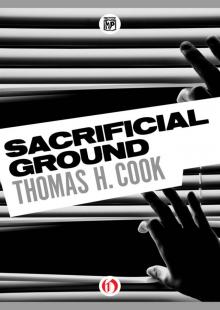 Sacrificial Ground
Sacrificial Ground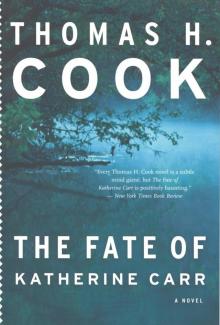 The Fate of Katherine Carr
The Fate of Katherine Carr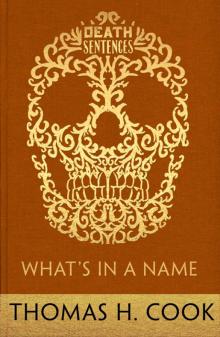 What's In A Name
What's In A Name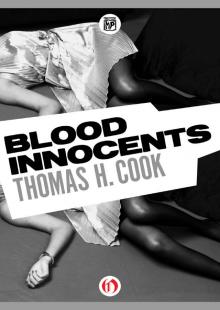 Blood Innocents
Blood Innocents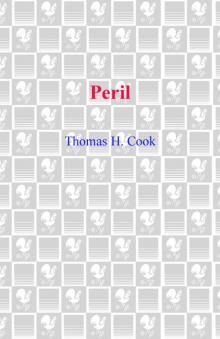 Peril
Peril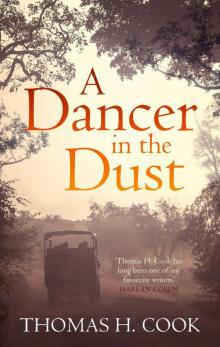 A Dancer In the Dust
A Dancer In the Dust Breakheart Hill
Breakheart Hill The Chatham School Affair
The Chatham School Affair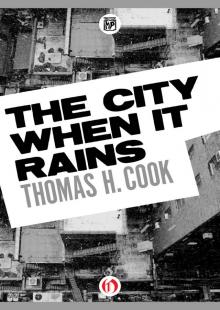 The City When It Rains
The City When It Rains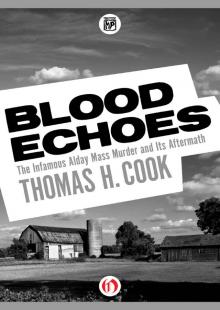 Blood Echoes
Blood Echoes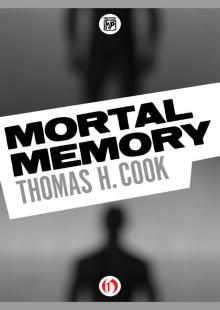 Mortal Memory
Mortal Memory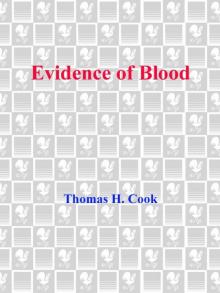 Evidence of Blood
Evidence of Blood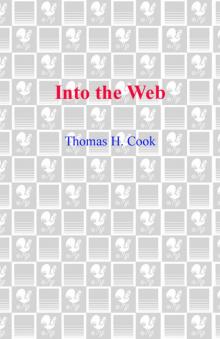 Into the Web
Into the Web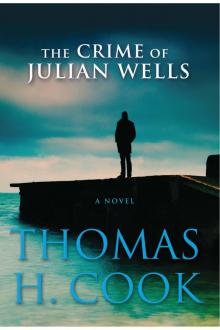 The Crime of Julian Wells
The Crime of Julian Wells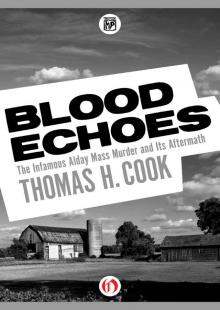 Blood Echoes: The Infamous Alday Mass Murder and Its Aftermath
Blood Echoes: The Infamous Alday Mass Murder and Its Aftermath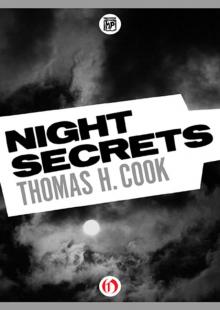 Night Secrets
Night Secrets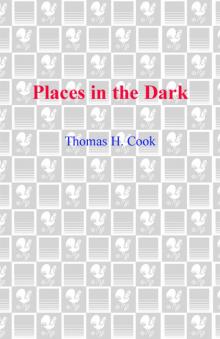 Places in the Dark
Places in the Dark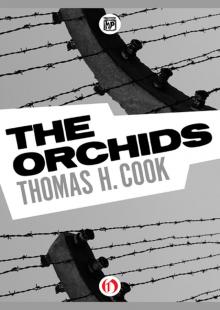 The Orchids
The Orchids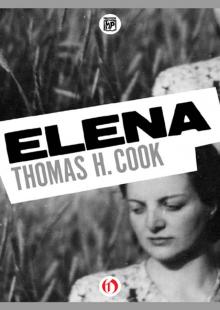 Elena
Elena Streets of Fire
Streets of Fire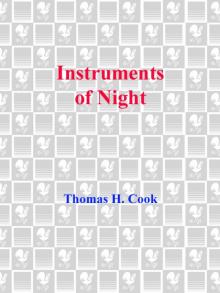 Instruments of Night
Instruments of Night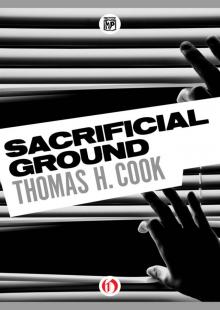 Sacrificial Ground fc-1
Sacrificial Ground fc-1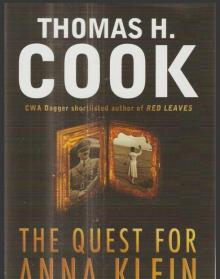 The Quest for Anna Klein
The Quest for Anna Klein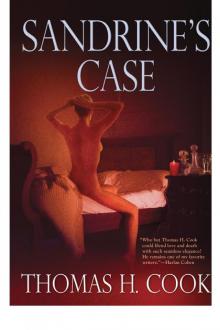 Sandrine's Case
Sandrine's Case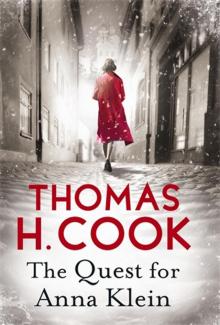 Quest for Anna Klein, The
Quest for Anna Klein, The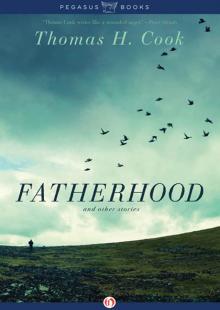 Fatherhood
Fatherhood Flesh and Blood
Flesh and Blood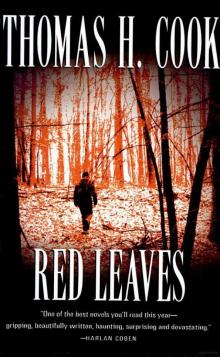 Red Leaves
Red Leaves